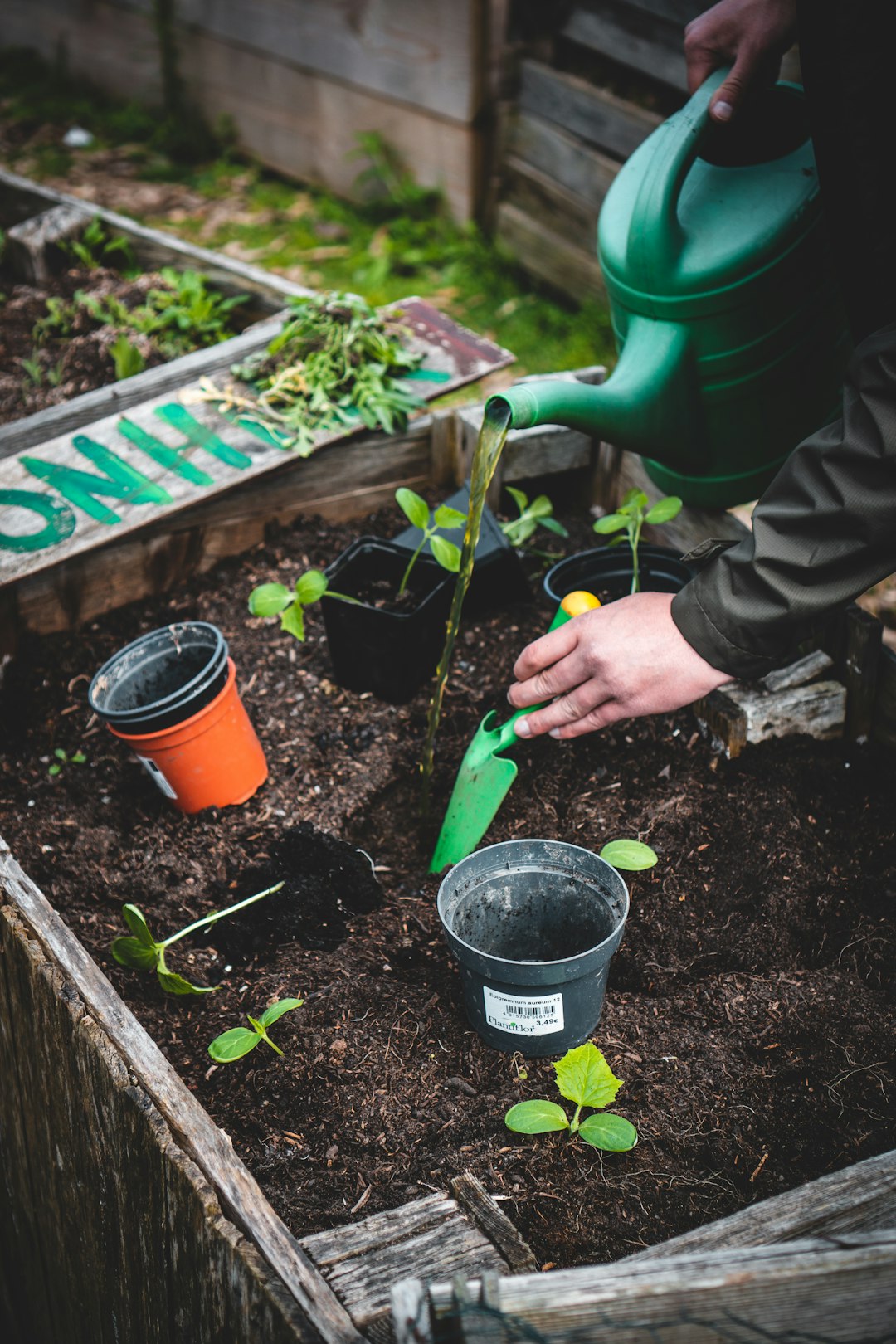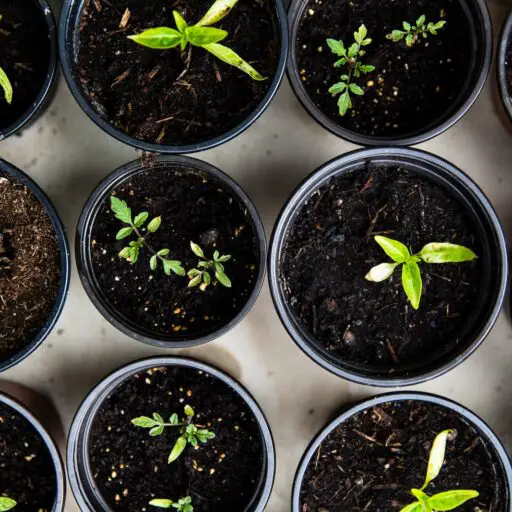Support our educational content for free when you purchase through links on our site. Learn more
Community gardens are blossoming across urban landscapes, transforming not just vacant lots but also the very fabric of our communities. But how do community gardens help sustainability? 🤔 You might be surprised to learn that these green spaces do more than just provide fresh produce; they play a pivotal role in enhancing biodiversity, improving air quality, and fostering social connections. In fact, studies show that neighborhoods with community gardens experience a 30% increase in local biodiversity! 🌼
In this article, we’ll explore 10 surprising benefits of community gardens that contribute to sustainability. From reducing carbon footprints to promoting local food systems, you’ll discover how these gardens are not just patches of green but vital ecosystems that can help combat climate change and improve community well-being. Ready to dig in? Let’s uncover the secrets of community gardening!
Key Takeaways
- Enhance Biodiversity: Community gardens support a variety of plants and wildlife, promoting ecological balance.
- Local Food Systems: They provide fresh produce, reducing reliance on industrial agriculture and food transport.
- Environmental Benefits: Community gardens improve air and soil quality while helping to manage stormwater runoff.
- Social Cohesion: They foster community ties, bringing people together and enhancing mental health.
- Educational Opportunities: Community gardens serve as platforms for learning about sustainable practices and gardening skills.
If you’re inspired to start your own community garden or support one in your area, check out these gardening supplies:
- 👉 Shop Gardening Supplies on:
Join the movement towards sustainability and see how you can make a difference! 🌍
Table of Contents
Quick Tips and Facts
The Role of Community Gardens in Promoting Sustainability
How Community Gardens Foster Biodiversity
Community Gardens and Local Food Systems
Environmental Benefits of Community Gardening
Social Impact: Building Community Through Gardening
Educational Opportunities in Community Gardens
Challenges and Solutions in Community Gardening
How to Start Your Own Community Garden
Success Stories: Inspiring Community Garden Projects
Future Trends in Community Gardening and Sustainability
Conclusion
Recommended Links
FAQ
Reference Links
Quick Tips and Facts
To understand how community gardens help sustainability, it’s essential to first learn about the impact of community gardens on the community 🌿. As explained in our related article, How Does a Community Garden Impact the Community? 10 Surprising Benefits 🌱 2025, community gardens offer numerous benefits, including improved air and soil quality, increased plant biodiversity, and enhanced water filtration. Here are some quick tips and facts about community gardens and their role in promoting sustainability:
- Community gardens are semi-public spaces shared by a community for growing fruits, vegetables, or flowers, sharing labor and harvest.
- They can be found in neighborhoods, schools, residential lands, or institutions like hospitals.
- Community gardens help the environment by improving air and soil quality, increasing plant biodiversity and livestock, and improving water filtration.
- They also contribute to sustainable development goals, such as universal access to safe green and public spaces, and raise awareness about gardening and urban agriculture.
Benefits of Community Gardens
Community gardens offer numerous benefits, including:
- Improved air and soil quality
- Increased plant biodiversity and livestock
- Improved water filtration
- Reduced neighborhood waste and food trucking miles, thus reducing air pollution
- Restoration of vacant land and ecosystems
- Promotion of biodiversity by planting native plants
- Education about gardening, urban agriculture, and their benefits
- Promotion of sustainable agriculture practices
The Role of Community Gardens in Promoting Sustainability
Community gardens play a significant role in promoting sustainability by providing a space for people to grow their own food, reducing their reliance on industrial agriculture, and promoting eco-friendly practices. As noted by the United States Department of Agriculture (USDA), community gardens can help reduce greenhouse gas emissions, conserve water, and reduce waste. For more information on the benefits of community gardens, visit our Benefits of Community Gardens page.
Community Garden Models
There are several community garden models, including:
- Urban community gardens: These gardens are located in urban areas and provide a space for city dwellers to grow their own food.
- Rural community gardens: These gardens are located in rural areas and provide a space for rural communities to grow their own food.
- School community gardens: These gardens are located in schools and provide a space for students to learn about gardening and sustainability.
How Community Gardens Foster Biodiversity
Community gardens can foster biodiversity by providing a space for a variety of plants and animals to thrive. As explained by the National Wildlife Federation, community gardens can be designed to attract pollinators, such as bees and butterflies, and provide habitat for other wildlife. For more information on how to create a wildlife-friendly community garden, visit our Garden Design Ideas page.
Planting Native Species
Planting native species is an important way to foster biodiversity in community gardens. Native plants are adapted to the local climate and soil conditions, and they provide a source of food and habitat for native wildlife. For more information on native plants, visit the Lady Bird Johnson Wildflower Center website.
Community Gardens and Local Food Systems
Community gardens can play a significant role in local food systems by providing a space for people to grow their own food. As noted by the Food and Agriculture Organization (FAO), community gardens can help increase food security, improve nutrition, and promote sustainable agriculture practices. For more information on local food systems, visit our Community Garden Events page.
Supporting Local Farmers
Supporting local farmers is an important way to promote local food systems. By buying produce from local farmers, individuals can help promote sustainable agriculture practices and support the local economy. For more information on how to support local farmers, visit the USDA website.
Environmental Benefits of Community Gardening
Community gardening can have numerous environmental benefits, including:
- Reduced greenhouse gas emissions: Community gardens can help reduce greenhouse gas emissions by providing a space for people to grow their own food, reducing their reliance on industrial agriculture.
- Conserved water: Community gardens can help conserve water by using efficient irrigation systems and promoting water-saving practices.
- Reduced waste: Community gardens can help reduce waste by composting and recycling organic materials.
Sustainable Gardening Practices
Sustainable gardening practices are essential for reducing the environmental impact of community gardens. These practices include:
- Using organic fertilizers: Organic fertilizers, such as compost, can help reduce the use of synthetic fertilizers and promote soil health.
- Conserving water: Efficient irrigation systems and water-saving practices can help conserve water and reduce waste.
- Reducing waste: Composting and recycling organic materials can help reduce waste and promote sustainability.
Social Impact: Building Community Through Gardening
Community gardens can have a significant social impact by providing a space for people to come together and build community. As explained by the American Community Gardening Association, community gardens can help promote social cohesion, improve mental health, and provide a sense of community. For more information on the social impact of community gardens, visit our Community Garden Policies page.
Building Community
Building community is an essential aspect of community gardens. By providing a space for people to come together and share knowledge, skills, and resources, community gardens can help promote social cohesion and improve mental health. For more information on how to build community in a community garden, visit our Garden Maintenance Tips page.
Educational Opportunities in Community Gardens
Community gardens can provide numerous educational opportunities, including:
- Workshops and classes: Community gardens can offer workshops and classes on gardening, sustainability, and environmental education.
- Hands-on learning: Community gardens can provide hands-on learning opportunities for people of all ages, promoting experiential learning and skill-building.
- Mentorship: Community gardens can provide mentorship opportunities, pairing experienced gardeners with beginners and promoting knowledge-sharing.
Educational Resources
There are numerous educational resources available for community gardens, including:
- Online courses: Online courses, such as those offered by the Master Gardener program, can provide training and education on gardening and sustainability.
- Workshops and conferences: Workshops and conferences, such as those offered by the American Community Gardening Association, can provide opportunities for networking and learning.
- Books and publications: Books and publications, such as those offered by the National Gardening Association, can provide information and guidance on gardening and sustainability.
Challenges and Solutions in Community Gardening
Community gardening can face numerous challenges, including:
- Limited space: Limited space can make it difficult to establish and maintain a community garden.
- Lack of funding: Lack of funding can make it difficult to purchase materials, tools, and equipment.
- Conflicts: Conflicts can arise between gardeners, neighbors, and other stakeholders.
Solutions
There are numerous solutions to these challenges, including:
- Partnering with local organizations: Partnering with local organizations, such as schools, churches, and non-profits, can help provide funding, resources, and support.
- Seeking grants and funding: Seeking grants and funding from government agencies, foundations, and corporations can help provide financial support.
- Building community: Building community and promoting social cohesion can help reduce conflicts and promote cooperation.
How to Start Your Own Community Garden
Starting a community garden can be a rewarding and challenging experience. Here are some steps to follow:
- Identify a location: Identify a location that is suitable for a community garden, taking into account factors such as sunlight, soil quality, and accessibility.
- Build a team: Build a team of dedicated individuals who can help plan, organize, and maintain the garden.
- Develop a plan: Develop a plan that outlines the goals, objectives, and strategies for the garden, including budget, timeline, and resource allocation.
- Secure funding: Secure funding through grants, donations, and other sources to support the garden.
- Establish rules and guidelines: Establish rules and guidelines for the garden, including policies for plot allocation, maintenance, and conflict resolution.
Resources
There are numerous resources available to help start and maintain a community garden, including:
- Online guides: Online guides, such as those offered by the American Community Gardening Association, can provide information and guidance on starting and maintaining a community garden.
- Workshops and classes: Workshops and classes, such as those offered by the Master Gardener program, can provide training and education on gardening and sustainability.
- Mentorship: Mentorship programs, such as those offered by the National Gardening Association, can provide opportunities for networking and learning.
Success Stories: Inspiring Community Garden Projects
There are numerous success stories of community garden projects that have made a positive impact on their communities. Here are a few examples:
- The High Line: The High Line is a community garden in New York City that has been transformed from an abandoned rail line into a thriving green space.
- The Chicago Community Gardeners Network: The Chicago Community Gardeners Network is a network of community gardens in Chicago that provides resources, support, and networking opportunities for gardeners.
- The Seattle Community Garden Program: The Seattle Community Garden Program is a program that provides funding, resources, and support for community gardens in Seattle.
Inspiring Stories
These success stories can inspire and motivate individuals to start their own community garden projects. By sharing knowledge, resources, and experiences, community gardeners can help create a more sustainable and equitable food system.
Future Trends in Community Gardening and Sustainability
The future of community gardening and sustainability looks bright, with numerous trends and innovations emerging. Here are a few examples:
- Urban agriculture: Urban agriculture is becoming increasingly popular, with cities around the world investing in urban farming initiatives and community gardens.
- Sustainable gardening practices: Sustainable gardening practices, such as permaculture and regenerative agriculture, are becoming more widely adopted.
- Technology and innovation: Technology and innovation are being used to improve community gardening, such as through the use of hydroponics, aeroponics, and other forms of soilless cultivation.
Emerging Trends
These emerging trends can help shape the future of community gardening and sustainability, providing new opportunities for innovation, collaboration, and growth. By staying up-to-date with the latest trends and developments, community gardeners can help create a more sustainable and resilient food system.
Conclusion

In conclusion, community gardens are not just patches of green in urban landscapes; they are vibrant ecosystems that contribute significantly to sustainability 🌍. By promoting biodiversity, enhancing local food systems, and fostering community ties, these gardens play a crucial role in creating healthier environments and societies. We’ve explored how they improve air and soil quality, support local economies, and provide educational opportunities.
While challenges exist—such as limited space and funding—solutions like community partnerships and grants can help overcome these hurdles. The success stories we’ve shared illustrate that with dedication and collaboration, community gardens can thrive and make a lasting impact.
If you’re inspired to start a community garden or support one in your area, remember that every little effort counts! 🌱
Recommended Links
-
👉 Shop Gardening Supplies on:
-
Books on Community Gardening:
FAQ

What are the environmental benefits of community gardens?
Community gardens offer numerous environmental benefits, including:
- Improved air quality: Plants absorb carbon dioxide and release oxygen, contributing to cleaner air.
- Soil enhancement: Gardening practices such as composting and organic farming improve soil health and reduce erosion.
- Biodiversity support: By planting a variety of species, community gardens can create habitats for pollinators and other wildlife, promoting ecological balance.
- Waste reduction: Many community gardens practice composting, which reduces landfill waste and enriches the soil.
Read more about “How Community Gardens Promote Social Interaction: 7 Inspiring Ways 🌱 …”
How do community gardens contribute to local food systems and reduce carbon footprints?
Community gardens enhance local food systems by:
- Providing fresh produce: They allow residents to grow their own fruits and vegetables, reducing reliance on store-bought produce that often travels long distances.
- Encouraging local economies: By supporting local farmers and markets, community gardens help keep money within the community.
- Lowering carbon emissions: By reducing the need for transportation of food, community gardens help decrease greenhouse gas emissions associated with food distribution.
In what ways do community gardens promote social sustainability and community resilience?
Community gardens foster social sustainability by:
- Building community ties: They bring people together, fostering friendships and collaboration among diverse groups.
- Encouraging participation: Community gardens provide opportunities for individuals to engage in decision-making and leadership roles, enhancing community resilience.
- Providing educational resources: They serve as platforms for teaching sustainable practices, nutrition, and gardening skills, empowering individuals and families.
Can community gardens help mitigate the effects of climate change?
Yes, community gardens can help mitigate climate change by:
- Sequestering carbon: Plants absorb carbon dioxide, helping to offset emissions.
- Promoting sustainable practices: Community gardens often employ organic gardening techniques that reduce chemical use and enhance soil health.
- Increasing green spaces: More green spaces in urban areas can help lower temperatures, improve air quality, and manage stormwater runoff.
Read more about “What is the Power of Community Gardens? 20 Transformative Benefits 🌱 …”
How do community gardens support biodiversity and ecological balance in urban areas?
Community gardens support biodiversity by:
- Providing habitats: They create spaces for various species of plants, insects, and animals, contributing to a healthier ecosystem.
- Encouraging native species: Many community gardens focus on planting native plants, which are better suited to local conditions and support local wildlife.
- Promoting pollinator health: By planting flowers and other plants that attract pollinators, community gardens help maintain healthy populations of bees, butterflies, and other essential species.
Reference Links
- United States Department of Agriculture (USDA)
- Food and Agriculture Organization (FAO)
- American Community Gardening Association
- National Wildlife Federation
- BMC Public Health – Improving lifestyles sustainability through community gardening
By exploring these resources, you can deepen your understanding of community gardens and their vital role in promoting sustainability. 🌱

